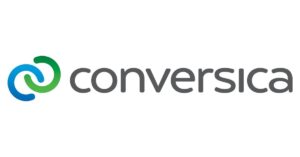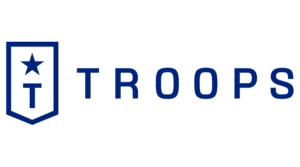In the recent past, artificial intelligence (AI) was no more than an abstract concept for most people. But today, a large (and growing) portion of consumers leverage this technology on a daily basis – both in their personal and professional lives.
Sales professionals are no exception.
In fact, most revenue organizations recognize that AI has the potential to boost productivity – and transform the way they do business. Per our Chief Revenue Officer + Sales Leader Outlook Report, 24% of revenue organizations do not currently use AI tools. On the other hand, 76% expect AI to impact their day-to-day jobs in the next year significantly.
Furthermore, Gartner research found that over a third (35%) of Chief Revenue Officers plan to establish a generative AI operations team in their go-to-market organization by the end of next year.
You risk being left behind if your team isn’t using AI tools. Your competitors are already using AI to optimize their processes, work more efficiently, and equip their reps with more information before any sales interaction. So why aren’t you?
In this post, we’ll look closer at how winning revenue organizations leverage AI sales tools to boost effectiveness and efficiency. We’ll also explore some of the top AI sales tools teams use to make their jobs easier.
How are revenue organizations using AI sales tools?
These days, people are using AI tools to streamline and simplify many aspects of their lives. They’re tapping into AI for everything – from drafting business communications to writing code to finding recipes – and everything in between.
But how are revenue teams using sales tools?
Sales teams use AI tools in many different ways. The most obvious use case for AI is to complete mundane tasks that traditionally take up a lot of a sellers’ time. One example is call summarization.
Traditionally, sellers would have to take notes while on a sales call, which is tedious and makes it difficult to focus on the call itself. Increasingly, revenue teams are leveraging AI to analyze call recordings and compile summaries. These summaries are helpful for sales reps; they don’t have to worry about forgetting something that happened during a call. Sales managers can also use these AI-generated call summaries to understand how the call went and where the sales rep might need additional coaching to improve the outcome.
According to the Chief Revenue Officer + Sales Leader Outlook Report, the following are some of the most common ways revenue teams are using AI sales tools:
- Serving up recommendations for training
- Suggesting content reps should use
- Helping reps get answers to customer questions in the flow of work
- Gaining insight on seller performance
Getting started with simple AI use cases such as call summarization is relatively easy. However, the most innovative revenue organizations are looking beyond these obvious use cases to identify more strategic and sophisticated applications.
How can organizations measure the ROI of AI sales tools?
In the best of times, ensuring your technology investments deliver value is important. This is especially true in today’s economic environment when budgets are tight, and new spending is often met with scrutiny.
AI sales tools are no exception to this rule. Investing in AI for the sake of investing in AI doesn’t make sense. Instead it’s important to regularly measure to ensure you’re deriving value from your investment in AI sales tools.
Measuring ROI requires tracking a number of metrics. Some key metrics to track include:
How much revenue you generate in a given period and how this compares to a previous period. For example, you may track revenue for a period after incorporating an AI sales tool – and compare that to a period before you had the tool.
The percentage of sellers who are meeting quota. AI sales tools should improve seller effectiveness. As such, investing in AI sales tools should increase quota attainment.
This measures how many prospects go on to make a purchase. This metric should increase with the investment in AI sales tools.
The sales cycle is the stages a sales rep goes through when closing a deal, from initial contract to contract signing. AI tools can boost efficiency by streamlining time-consuming tasks. As a result, the length of the sales cycle should ideally decrease after implementing AI sales tools.
By automating mundane tasks, sales reps can spend more time engaging buyers and delivering value. Customer satisfaction will grow, increasing their likelihood of sticking around long-term. As a result, retention rates will increase, as well as customer lifetime value.
What are some of the top AI sales tools?
The right AI sales tools can boost sales effectiveness and efficiency. That means your sales reps can close more deals faster.
Which AI sales tools should you use? It depends on your goals for AI.
However, there are some AI sales tools that are popular across the board. Let’s look closely at five of the top AI sales tools.
Many sales organizations know the 80-20 rule all too well: the all-too-frequent situation where 80% of the revenue is driven by 20% of their reps. But when one of your top performers leaves, that can cause a major headache (and revenue shortfall) for sales departments. Instead of continuing to hope that their top reps don’t leave, forward-thinking companies turn to Mindtickle. Our platform empowers sales reps to achieve a continuous state of sales excellence by using its tools and processes to increase reps’ knowledge and improve their performance. With Mindtickle, you can correlate competencies with revenue outcomes, helping you focus on the individualized knowledge, skills, and behaviors that help your reps win deals.
Mindtickle uses AI to analyze all sales interactions, from customer calls to emails, to assess reps’ performance at each stage in the sales process. Then it uses that data to provide AI-driven coaching and training recommendations that are personalized to each rep. These recommendations, exercises, and activities help to raise the performance level across your whole sales team so all agents can become top performers and achieve sales readiness.
An AI-powered sales readiness platform like Mindtickle offers sales leaders (and their teams) many benefits that have a positive impact on the rest of the organization:
- Managers automatically get better visibility into their reps’ performance, including specific areas for improvement so they can prioritize coaching where it will have the biggest impact.
- It creates a team culture of continuous improvement, as reps receive training and coaching recommendations on an ongoing basis, not just once a quarter in your sales kickoff.
- It raises the team performance standards, which leads to improved close rates, as reps are better able to manage complex or high-value sales interactions.
A platform like Mindtickle helps your sales team close more deals by ensuring all your reps are ready for their upcoming sales calls, equipped with the skills, knowledge, and best-practice behaviors to perform at their best.


Incomplete data in your CRM makes it impossible for sales leaders to monitor the progress of leads through the sales funnel or know when their reps are facing challenges and need support. Tools like Rollio make it easier for teams to update records in the CRM after every customer interaction to improve the quantity and quality of your CRM data.
Rollio connects with Salesforce and uses AI to enable sales reps to interact with their CRM like they’re speaking to a person. For example, agents can ask Rollio to update a prospect record in Salesforce using conversational language, for example, “Update my opportunity with Mindtickle. Add a pricing conversation as a next step, and push the close date back one month.” Rollio’s AI will interpret their instructions and update the record accordingly. This speeds up data entry, so your customer records are more up-to-date and contain more information about sales interactions compared with updating records manually.
An AI-driven tool like Rollio benefits sales reps and managers by:
- Reducing time spent on data entry, so reps can spend their time on higher-impact sales interactions instead
- Improving the quality and quantity of data in your CRM, so reps and managers have access to all the relevant data for prioritizing leads and follow-up sales activities
- Giving sales leaders an easy way to get updates about their team’s activities
More complete data in your CRM helps sales professionals close more deals, as they have the full context available for their next interaction with a prospect. For example, reps can personalize follow-up messages based on their conversation, and managers can more easily support agents when CRM data suggests a deal is moving toward closed/lost.


Forrester found that sales reps spend only 23% of their time on core sales activities. Tools like Conversica enable sales organizations to increase their team productivity (in terms of touchpoints and follow-ups) without hiring more reps and increasing their headcount.
Conversica provides sales teams with an AI assistant to automatically follow up with leads via chatbot, email, or SMS. It helps increase the number of touchpoints leads have with your company by automating low-value acknowledgment messages while enabling your reps to focus on higher-value sales interactions. In addition, Conversica uses conversational AI to speed up response times and scale up your team’s productivity without needing additional team members to do so.
For sales teams, this means:
- They can automate lead follow-up so prospects hear back from you sooner
- Leads are kept warm and engaged between interactions with real members of your team
Sales cycles may accelerate due to an increased number of touchpoints in the process - Reps have more time to personalize their interactions with customers, as low-value acknowledgment-style interactions are handled automatically
AI tools like Conversica, which provide sales teams with a virtual assistant, help them close more deals by spending more time personalizing their messages and less time on routine prospect interactions.


If sales leaders don’t know how prospects are progressing through their sales funnel, it becomes difficult (or almost impossible) to accurately plan team resources or prioritize upcoming sales interactions. A revenue communication tool like Troops gives sales teams — both reps and managers — ongoing visibility into your team’s performance by surfacing and sharing relevant updates from your CRM.
Troops connects your CRM with messaging apps your team uses all the time through integrations with Slack and Microsoft Teams. It automatically delivers notifications in your messaging tools to provide your team with insights, updates, or reminders about deals in their pipeline. It also notifies you in real-time when anything happens that will have a significant impact on revenue — such as a deal that’s marked closed/won or closed/lost.
It offers several benefits for sales organizations:
- Sales leaders get a better overview of deal flow and rep performance
- Improved pipeline visibility means managers can improve the accuracy of their sales forecasting
- You can leverage team expertise to move deals forward, as all updates are visible to your whole team
AI tools that give your sales leaders better pipeline visibility help sales teams close more deals by making it easier for managers to support more complex customer interactions. Managers are more aware of ongoing sales conversations and the potential roadblocks and can support their team where needed.
AI sales tools will empower your team — not replace them
Many sales teams still have a lingering fear that AI sales tools will replace them and steal their jobs. Or they worry the AI will become a data dump, giving their teams piles of data with no context to help them draw actionable insights.
But AI technology actually empowers and enables your sales team — it helps them do their jobs better and gives them the data and insights they need to help them close more deals. There are lots of different ways AI can support sales teams, so if you’re ready to add artificial intelligence into your department’s toolkit, check out our Buyer’s Guide to Conversation Intelligence Solutions.
Buyer's Guide to Conversation Intelligence
Everything you need to know when you're evaluating a technology partner for conversation intelligence solutions.
Get the GuideThis post was originally published in March 2022, was updated in July 2023, and again in February 2024.







